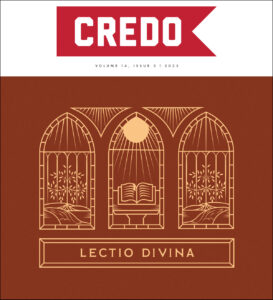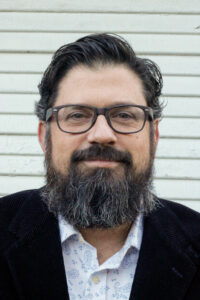
Should Protestants Practice Contemplation?
W e live in an extremely distracted environment; we have a world of amusements at our fingertips. If so desired, one could spend hours a day on a screen scrolling through various social media or streaming platforms, and many of us do. While not altogether bad, these virtually endless entertainment options can easily have us wasting our time away while more important matters are neglected or forgotten. Not the least of those matters for which we need to account as Christians is time spent with God and the way in which we think about Him.
e live in an extremely distracted environment; we have a world of amusements at our fingertips. If so desired, one could spend hours a day on a screen scrolling through various social media or streaming platforms, and many of us do. While not altogether bad, these virtually endless entertainment options can easily have us wasting our time away while more important matters are neglected or forgotten. Not the least of those matters for which we need to account as Christians is time spent with God and the way in which we think about Him.
A.W. Tozer famously wrote, “What comes into our minds when we think about God is the most important thing about us.”[1] The question that arises as we consider our current topic is, do we actually think about God? Further, John Webster said as we go about the task of theologizing (if you will), all of the tasks involved, “are preparatory, contributory, or dispositive, serving to conduce the mind to contemplation of the infinite excellence of the divine being.”[2] As we investigate the Lectio Divina (LD), contemplation is the final stage of practice. Only after we have read, meditated, and prayed should we then contemplate, by way of “silent resting in the love of God,” as Hans Boersma describes it.[3] The LD itself, not to mention the practice of contemplation in general, has come under scrutiny in recent years. A certain sector of evangelical authors has questioned whether Protestant Evangelicals should practice LD or contemplation.[4] We should, of course, weigh any practice against the teaching of Scripture, so faithful Christians will be weary of adopting any practice without careful exegetical consideration. However, just as with anything, we are not and should not be isolated from the history of the church when it comes to practices, so we must also be careful to consider such practices from church history and also the “whom” of that practice. We should as well, agree that the definition of contemplation is not entirely agreed upon amongst those who seek to describe it. Therefore, let us press forward into these matters, looking to Scripture and the history of understanding contemplation, as well as formulating some theological conclusions.
Scriptural Silence
As we consider Boersma’s idea of “silent resting in God’s love,” as the final stage of the LD, perhaps a verse that comes to mind is Psalm 46:10, “Be still, and know that I am God.” It’s ironic that this is such a well-known and oft quoted verse that likely falls easily from the lips of those who question the validity of silently resting in God’s love as a protestant Christian practice. Of this verse and similar Psalms, Evan B. Howard rightly states, “While these psalms do not describe a particular discipline of devotion, they do promote a mood of devotion, a mood of setting aside anxious thoughts to rest in trustful stillness within the care of the Almighty.”[5]
It is fair to say that unlike the New Age concept of emptying one’s mind, LD rather commends the filling of one’s mind with truth, hence: reading and meditating. Share on X The previous quote comes from a contemporary volume addressing the issue at hand aptly named Embracing Contemplation. The book’s editors admit that articles found within do not present a “unified view on the topic,”[6] which leads to a question we must consider for the current article, which is: what are the definitive bounds of contemplation? The editors of EC divide contemplation in to two categories: supernatural and natural. Briefly, they argue that natural contemplation is something of which all humanity (even the unregenerate) is capable. Therefore, supernatural contemplation is that which only the regenerate is capable, and it is due to the indwelling of the Holy Spirit. This reality, they state, is the reason that Christian contemplation does not fall into the trap of New Age thought, as some criticize.[7] It is fair to say that unlike the New Age concept of emptying one’s mind, LD rather commends the filling of one’s mind with truth, hence: reading and meditating. Therefore, if the definition of contemplation can vary, then we must at least settle upon the fact that a Spirit-driven and biblical form of contemplation is viable for Protestants. The burden is to prove that there is Biblical grounds, which not only rests upon exegesis solely but also upon appropriate historical interpretation.

